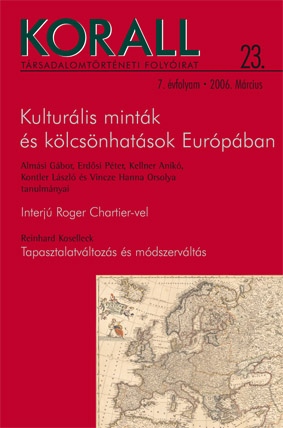A kora újkori magyar fordítások tétje
The stakes of translation in Early Modern Hungary
Author(s): Hanna Orsolya VinczeSubject(s): History
Published by: KORALL Társadalomtörténeti Egyesület
Summary/Abstract: Translations into the vernacular have a special importance for Hungary, where a signifi cant amount of works printed in the seventeenth century are translations of foreign works or compilations of several. Th ey contributed to the creation of an ethnolinguistic conception of the nation, by claiming to address all speakers of the vernacular regardless of social standing. In refl ections on translations however, references to the new concept were used as a rhetorical strategy to redefi ne the extant conception of the political nation. Th e stakes of the endeavour were that the characteristics by which one could belong to the nation should be redescribed in such a way that the new concept arising should include the translators as well, moreover that their characteristics should be central to the new defi nition. Th erefore, at least for Hungary, describing the early modern translation practice as intercultural communication misses what they were meaning to do, and not primarily by virtue of the translator’s belonging to the European Republic of Letters not divided by cultural boundaries. Th ey saw nations peting with each other, but what was remarkable about other nations was the very practice of translation and implicitly the high regard of such activities. All these remarks were rather elements in an intercultural game over defi nitions and ultimately about power.
Journal: Korall - Társadalomtörténeti folyóirat
- Issue Year: 2006
- Issue No: 23
- Page Range: 116-132
- Page Count: 17
- Language: Hungarian

